Finances can be stressful, scary and anxiety provoking. Given that 47% of Canadians live paycheque to paycheque[1], the increasing costs of education (university tuition fees in Canada have increased by 40% in the last decade[2]), and the increase in precarious work, I would guess that most students, are or have been stressed about their finances.
In an effort to find out about the services available to support students I had the pleasure of interviewing Haiyan Zhao, Interim Director Student Financial Services and Helen Lee, Manager Well-being, & Health Promotion. Both Haiyan and Helen genuinely care about student well being, understand the number of challenges students face, the associated stress and have been working to make financial interactions with the university easier and to ensure that students have the health supports needed to thrive at university.
York University is a big institution with over 50,000 students, 26,947 of which received OSAP as full time students. All these students have unique needs, circumstances and challenges. Although there are commonalities like accessing funding for school, there are an innumerable amount of individual circumstances that can impact students’ OSAP and overall finances. For example, some students may find great part time employment, significantly increasing their income, and others may drop a course moving their status to part-time, both of which could have implications for OSAP.
Haiyan, discussed how empowerment is critical to managing student finances. In order to support such a large student base, Student Financial Services has developed a breadth of resources including a number of self-service tools ranging from a financial document tracker to OSAP course load calculator, OSAP application update forms required for common activities, to knowledge on money management and Student Financial Services Peer Support Services which enables the financial aid office to provide support and knowledge to students in a peer format.
These resources provide a strong foundation for students enabling them to better manoeuver the system. Students who are most effective in getting what they need from Student Financial Services, take the time to find and understand the available resources, stay abreast of deadlines and dates, ask informed questions, and follow all the outlined steps.
These types of actions are all signs of individuals who have developed their agency - they recognize that the system is complex and, that often minor changes, like dropping a course may have significant impacts they are unaware of. Given this, they recognize that ultimately, they are responsible for figuring out how to make it work. Haiyan says “sometimes we don’t know what students know, and we have to step in as their partner and show them ways to utilize Student Financial Services.” This process does require help from others but it is important that students are willing to drive the bus - they have to understand what their needs are, ask questions, get answers, fill out the right paper work, check to see if the documents are correct, ask when they will receive notices, follow up. It is in doing this that they are most likely to get what they need.
Although this approach is not rocket science, when students know how to manage the system and their money, they are more likely to stay in school and prioritize their education.
Helen understands the impact of financial and other difficulties on students. She knows that over 65% of Ontario students reported feeling overwhelming anxiety within the past 12 months[3], and that finances certainly play a component in this. Helen has seen heightened levels of stress in students and is seeing the stress earlier with first year students coming in concerned about their careers.
To support students, York has developed a mental health strategy and created a breadth of resources, tools and tips ranging from counselling to workshops on important topics like learning skills to interactive self-help therapy. Helen spoke about the importance of proactively dealing with stress. It is true that stress can often be immobilizing and many of us get that “I want to hide under a blanket feeling”, yet figuring out how to productively deal with challenges is key to moving forward, taking control and long-term reduction of stressors.
Sometimes within a large institution, it is difficult to understand the breadth of resources that are available. Often challenges are so overwhelming that students are focused on getting through or don’t know where to start. Helen also speaks of the importance of building resilience, empowerment and agency. The key can often be in “identifying internal and external resources, career resources that will help map what you are studying to possible pathways….learning resources that will help strengthen studying and exam writing techniques, financial planning resources to help build a plan to fund education”. Through this process, students can take meaningful steps to reduce their anxieties and advance towards their goals.
In an ideal world, we would not have close to half of Canadians living paycheque to paycheque and over half of students experiencing overwhelming anxiety. Unfortunately we do and given the level of financial challenges and other stressors it is important to understand the role that empowerment can play in enabling individuals to get to their goals.
As we work to increase individual empowerment, let’s also think about how we might address the systemic issues we have today so that all students can thrive.
[1] The Canadian Press, “47% of Canadians living paycheque to paycheque, survey finds”. BNN Bloombert, 7 Sept. 2017, Retrieved November 1 from https://www.bnnbloomberg.ca/47-of-canadians-living-paycheque-to-paycheque-survey-finds-1.848429
[2] Cain, Patrick. “University tuition fees in Canada rise 40 percent in a decade”. Global News, 7 Sept. 2016, Retrieved November 1, 2018 from https://globalnews.ca/news/2924898/university-tuition-fees-rise-40-per-cent-in-a-decade/
[3] York University, “Mental Health & Wellness, a strategic long-term approach”, Retrieved 1 Nov. 2018 from http://mhw.info.yorku.ca/files/2015/12/YorkViceProvost-Mental_Health_Infographic-September-2016-update.pdf

